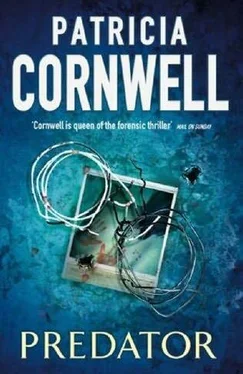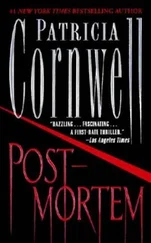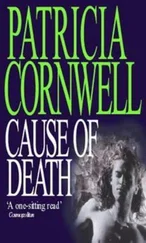Patricia Cornwell - Predator
Здесь есть возможность читать онлайн «Patricia Cornwell - Predator» весь текст электронной книги совершенно бесплатно (целиком полную версию без сокращений). В некоторых случаях можно слушать аудио, скачать через торрент в формате fb2 и присутствует краткое содержание. Жанр: Фантастика и фэнтези, на английском языке. Описание произведения, (предисловие) а так же отзывы посетителей доступны на портале библиотеки ЛибКат.
- Название:Predator
- Автор:
- Жанр:
- Год:неизвестен
- ISBN:нет данных
- Рейтинг книги:4 / 5. Голосов: 1
-
Избранное:Добавить в избранное
- Отзывы:
-
Ваша оценка:
- 80
- 1
- 2
- 3
- 4
- 5
Predator: краткое содержание, описание и аннотация
Предлагаем к чтению аннотацию, описание, краткое содержание или предисловие (зависит от того, что написал сам автор книги «Predator»). Если вы не нашли необходимую информацию о книге — напишите в комментариях, мы постараемся отыскать её.
Predator — читать онлайн бесплатно полную книгу (весь текст) целиком
Ниже представлен текст книги, разбитый по страницам. Система сохранения места последней прочитанной страницы, позволяет с удобством читать онлайн бесплатно книгу «Predator», без необходимости каждый раз заново искать на чём Вы остановились. Поставьте закладку, и сможете в любой момент перейти на страницу, на которой закончили чтение.
Интервал:
Закладка:
38
The snow is full of moonlight beyondBenton’s upstairs office window, and the lamps are switched off. He sits at his computer, displaying photographs on the screen until he finds the ones he wants.
There are one hundred and ninety-seven photographs-disturbing, grotesque photographs-and it has been an ordeal to find these particular ones because he is disconcerted by what is before him. He is unsettled. He feels that something beyond the obvious has happened and is happening, and he is personally upset by the case, and at this stage of his vast experience, that is hard to imagine. Distracted, he didn’t jot down the sequence numbers, and it took him the better part of half an hour to find the photographs in question, numbers 62 and 74. He is impressed with Detective Thrush, with the Massachusetts State Police. In a homicide, especially a homicide like this, one can never do too much.
In violent deaths, nothing improves with time. The scene vanishes or is contaminated and one can’t go back. The body changes after death, especially after the autopsy, and one can’t go back, not really. So state police investigators went into high alert and were aggressive with their cameras, and nowBentonis overwhelmed with photographs and video recordings and has been studying them since he got home from his visit with Basil Jenrette. DuringBenton’s twenty-some years with the FBI, he thought he had seen it all. As a forensic psychologist, he assumed he had seen just about every permutation of bizarreness. But he has never seen anything quite like this.
Photographs 62 and 74 aren’t as explicit as most, because they don’t show what is left of the unidentified woman’s destroyed head. They don’t show her in all her faceless, gory horror. She reminds him of a spoon, a hollowed-out shell on the stalk of a neck, her black, raggedly cut hair matted with bits of brain, tissue and dried blood. Photographs 62 and 74 are close-ups of her body from the neck to the knees, and they give him a feeling he can’t describe, the sensation he has when something reminds him of something disturbing he can’t remember. The images are trying to tell him something he already knows but can’t reach. What? What is it?
In 62, the torso is face-up on the autopsy table. In 74, it is facedown, and he clicks back and forth between the two images, studying her naked torso, trying to make sense of the bright red handprints and the angry, abraded skin between her shoulder blades, a six- by eight-inch area of flesh rubbed raw and embedded with what appears to be “wood-like splinters and dirt,” according to the autopsy report.
He has been contemplating the possibility that the red handprints were painted before the woman died, that it has nothing to do with her murder. Maybe for some reason she already had gotten the bodypainting before she encountered her assailant. He has to consider it, but he doesn’t believe it. More likely, it was the killer who turned her torso into a work of art, one that is degrading and suggestive of sexual violence, suggestive of hands grabbing her breasts and forcing open her legs, symbols he painted on her while he held her hostage, possibly when she was incapacitated or dead.Bentondoesn’t know. He can’t tell. He wishes the case were Scarpetta’s, that she had gone to the scene and done the autopsy. He wishes she were here. As usual, something came up.
He reviews more photographs and reports. The victim is presumed to be in her mid-thirties or early forties, and her postmortem findings reiterate what Dr. Lonsdale said in the morgue, she hadn’t been dead long when her body was discovered on an easement that leads through Walden Woods, not far fromWalden Pond, in the wealthy town ofLincoln. Swabs from the physical evidence recovery kit are negative for seminal fluid, and it isBenton’s preliminary assessment that whoever killed her and posed her body in the woods is driven by sadistic fantasies, the sort of sexual fantasies that objectify the victim.
Whoever she is, she was nothing to him. She wasn’t a person, just a symbol, just a thing for him to do with as he pleased, and what pleased him was to degrade and terrorize, to punish, to make her suffer, to force her to face her own impending violent and humiliating death, to taste the shotgun barrel in her mouth and watch him pull the trigger. He might have known her, or she might have been a stranger to him. He might have stalked her and abducted her. No one fitting her description has been reported missing fromNew England, say the Massachusetts State Police. No one fitting her description has been reported missing from anywhere.
Beyond the pool is the seawall. It is big enough to moor a sixty-foot boat, although Scarpetta doesn’t have one and has never wanted one of any size or description.
She watches the boats, especially at night when bow and stern lights move like aircraft along the dark waterway, silent but for the rumbling of their engines. If the lights are on in the cabins, she watches people moving around or sitting and lifting glasses, laughing or serious or just there, and she doesn’t want to be them or be like them or be with them.
She was never like them. She never wanted anything to do with them. When she was growing up poor and isolated, she wasn’t like them and couldn’t be with them, and that was their choice. Now the choice is hers. She knows what she knows, is on the outside looking into lives that are irrelevant, depressing, empty and scary. She has always feared something tragic would happen to her niece. It is natural for her to entertain morbid thoughts about anyone she loves, but the inclination has always been more extreme with Lucy. Scarpetta has always worried that Lucy would die a violent death. Never did it occur to her that she might get sick, that biology might turn on her, not because it’s personal but because it isn’t.
“I started having symptoms that didn’t make sense,” Lucy says in the dark, between two wooden pilings, where they sit in teak chairs.
There is a table, and on it are drinks and cheese and crackers. They haven’t touched the cheese and crackers. This is their second round of drinks.
“Sometimes I wish I smoke,” Lucy adds, reaching for her tequila.
“That’s a strange thing to say.”
“You didn’t think it strange when you did it all those years. You still want it.”
“It doesn’t matter what I want.”
“That is something you would say, as if you’re exempt from the same feelings other people have,” Lucy replies in the dark to the water. “Sure it matters. Whatever you want matters. Especially when you can’t have it.”
“Do you want her?” Scarpetta asks.
“Which her?”
“Whatever her you were with last,” she reminds her. “Your most recent conquest. In Ptown.”
“I don’t look at them as conquests. I look at them as brief escapes. Like smoking pot. I guess that’s the most disappointing part. It means nothing. Only this time it may mean something. Something I don’t understand. I may have walked into something. Been really blind and stupid.”
She tells Scarpetta about Stevie, about her tattoos, the red handprints. She has a difficult time talking about it but tries to sound detached, as if she is talking about what somebody else did, as if she is discussing a case.
Scarpetta is silent. She picks up her drink and tries to think about what Lucy has just said.
“Maybe it means nothing,” Lucy goes on. “A coincidence. A lot of people are into weird body art, all kinds of weird stuff in acrylics and latex that they airbrush all over themselves.”
“I’m getting tired of coincidences. There seem to have been a lot of them lately,” Scarpetta says.
“This is pretty good tequila. I wouldn’t mind a joint right now.”
Читать дальшеИнтервал:
Закладка:
Похожие книги на «Predator»
Представляем Вашему вниманию похожие книги на «Predator» списком для выбора. Мы отобрали схожую по названию и смыслу литературу в надежде предоставить читателям больше вариантов отыскать новые, интересные, ещё непрочитанные произведения.
Обсуждение, отзывы о книге «Predator» и просто собственные мнения читателей. Оставьте ваши комментарии, напишите, что Вы думаете о произведении, его смысле или главных героях. Укажите что конкретно понравилось, а что нет, и почему Вы так считаете.












